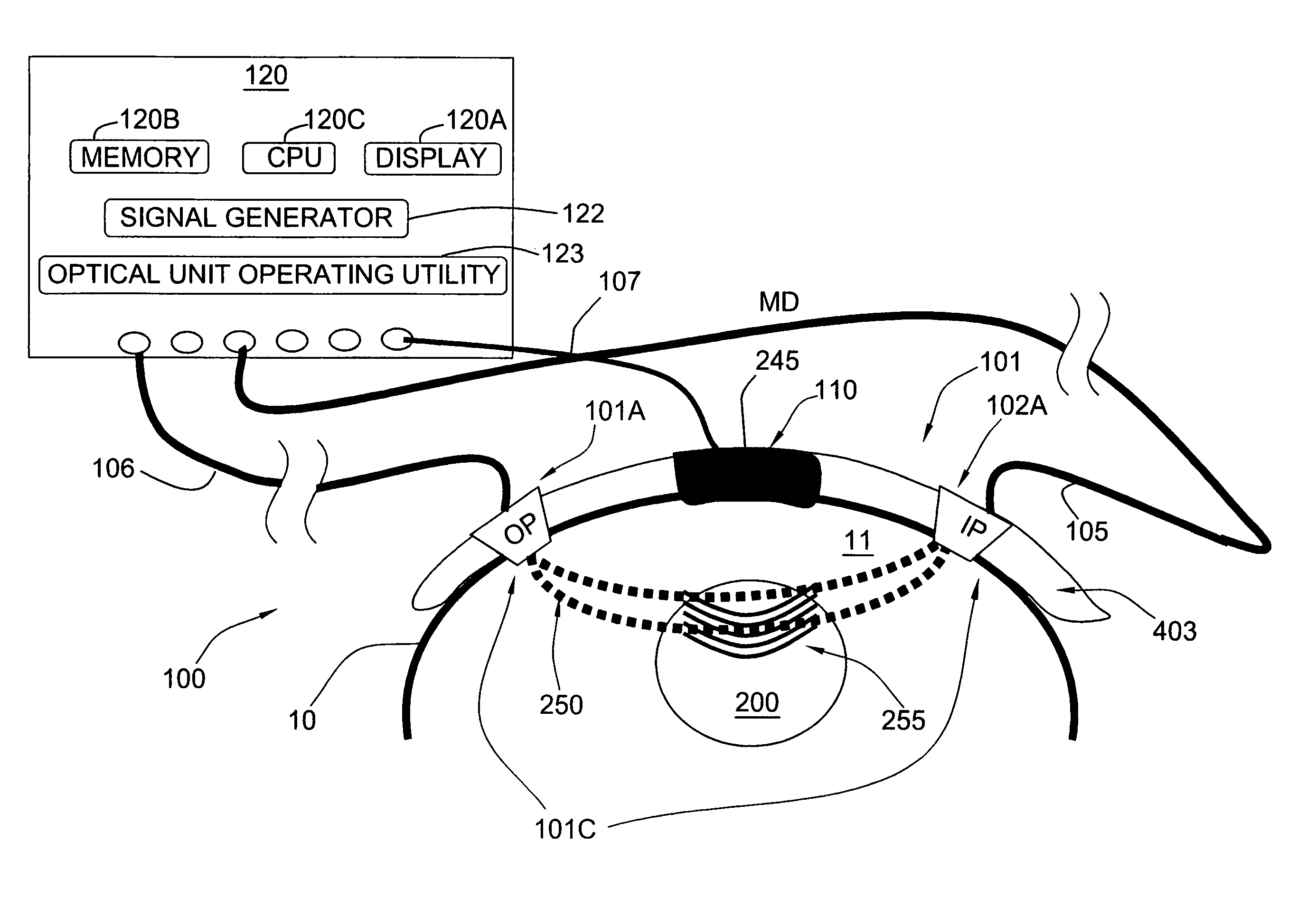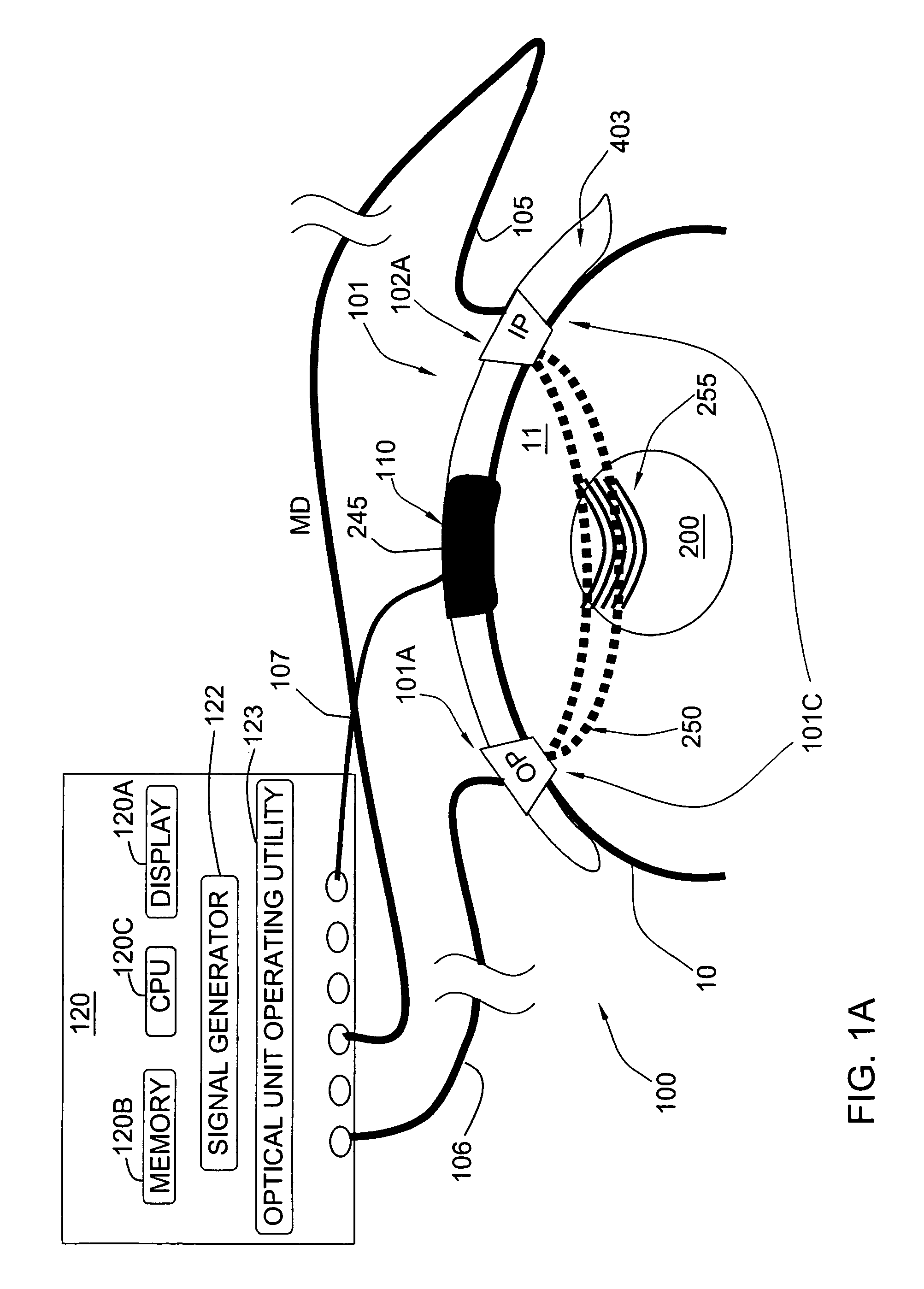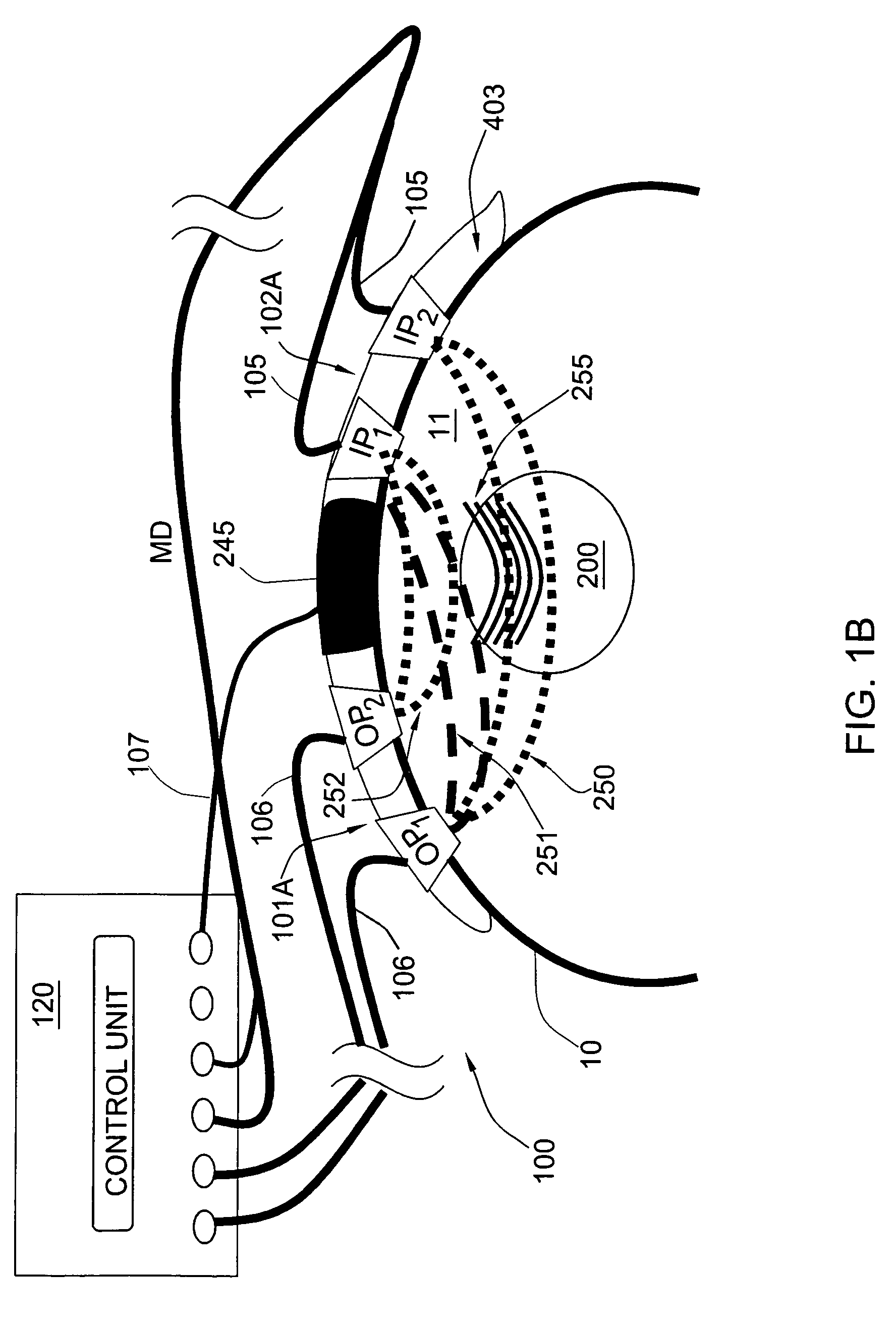Noninvasive measurements in a human body
a human body and non-invasive technology, applied in the field of medical devices, can solve the problems of uncertainty in path length, computation-intensive tomographic devices and algorithms, and localization of probed volume, and achieve the effect of facilitating non-invasive measurements
- Summary
- Abstract
- Description
- Claims
- Application Information
AI Technical Summary
Benefits of technology
Problems solved by technology
Method used
Image
Examples
Embodiment Construction
[0042]Reference is made to FIGS. 1A-1C illustrating schematically three specific but not limiting examples of a measurement system, generally designated 100, configured and operable according to the invention for non-invasive measurements of one or more parameters (properties of tissue components) of a region of interest 200 in a human or animal body. This may be an oxygen saturation level, or various other parameters such as the concentration of an analyte in the patient's blood, or the perfusion of an analyte / metabolite in tissues. To facilitate understanding, the same reference numbers are used for identifying components that are common in all the examples of the invention.
[0043]The system 100 includes a measurement unit 101 and a control unit 120. The measurement unit 101 includes: an optical unit 101C formed by an illumination assembly 101A and a light detection assembly 102A; and an acoustic unit formed by a transducer arrangement 110. The control unit 120 is configured to con...
PUM
 Login to View More
Login to View More Abstract
Description
Claims
Application Information
 Login to View More
Login to View More - R&D
- Intellectual Property
- Life Sciences
- Materials
- Tech Scout
- Unparalleled Data Quality
- Higher Quality Content
- 60% Fewer Hallucinations
Browse by: Latest US Patents, China's latest patents, Technical Efficacy Thesaurus, Application Domain, Technology Topic, Popular Technical Reports.
© 2025 PatSnap. All rights reserved.Legal|Privacy policy|Modern Slavery Act Transparency Statement|Sitemap|About US| Contact US: help@patsnap.com



